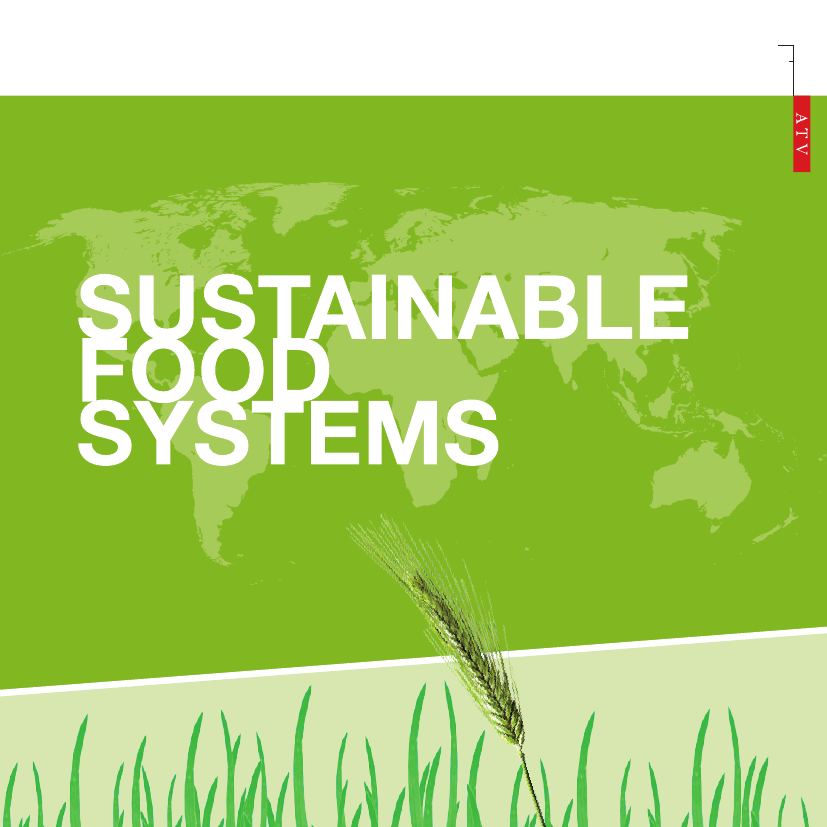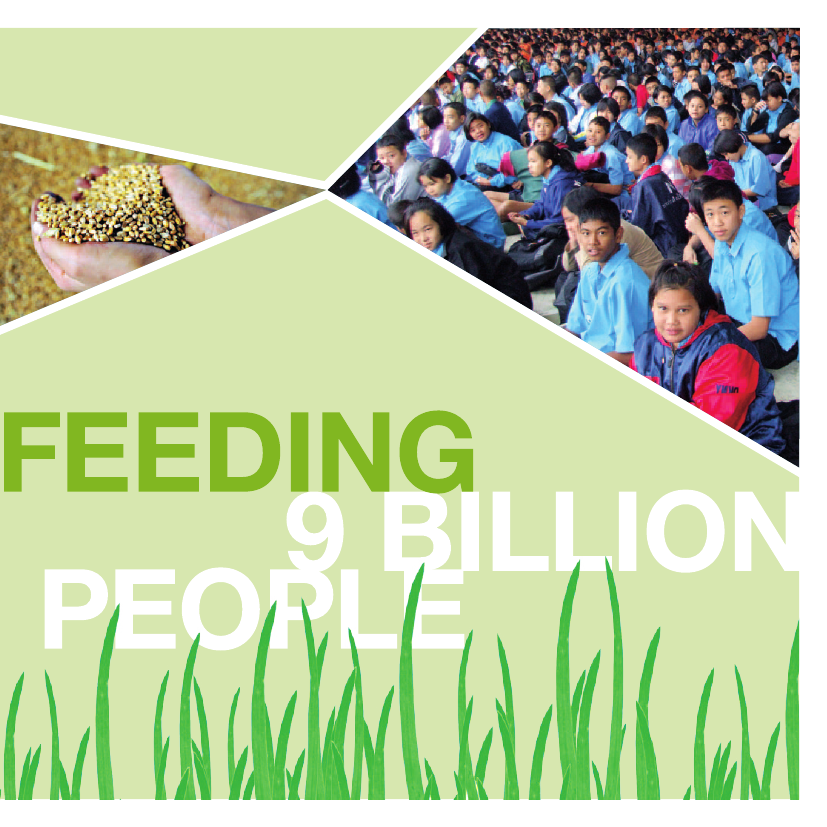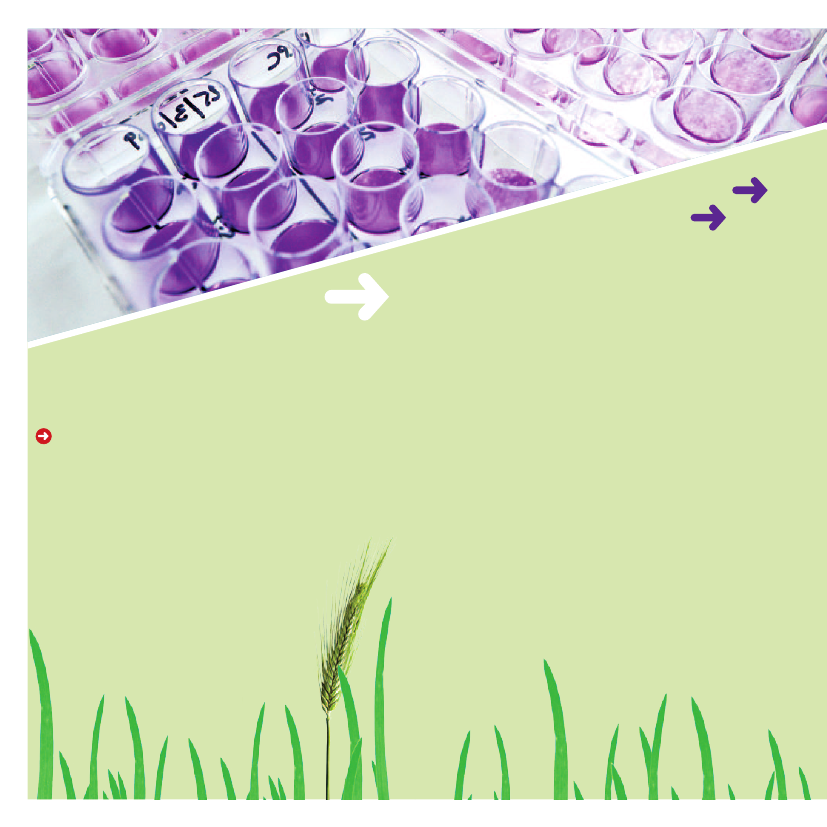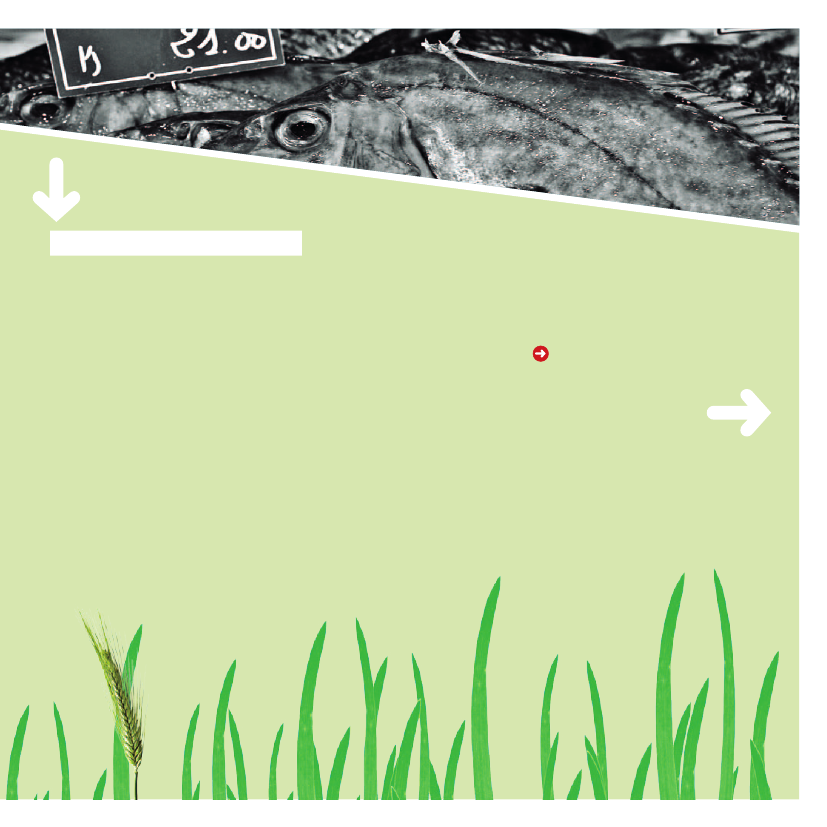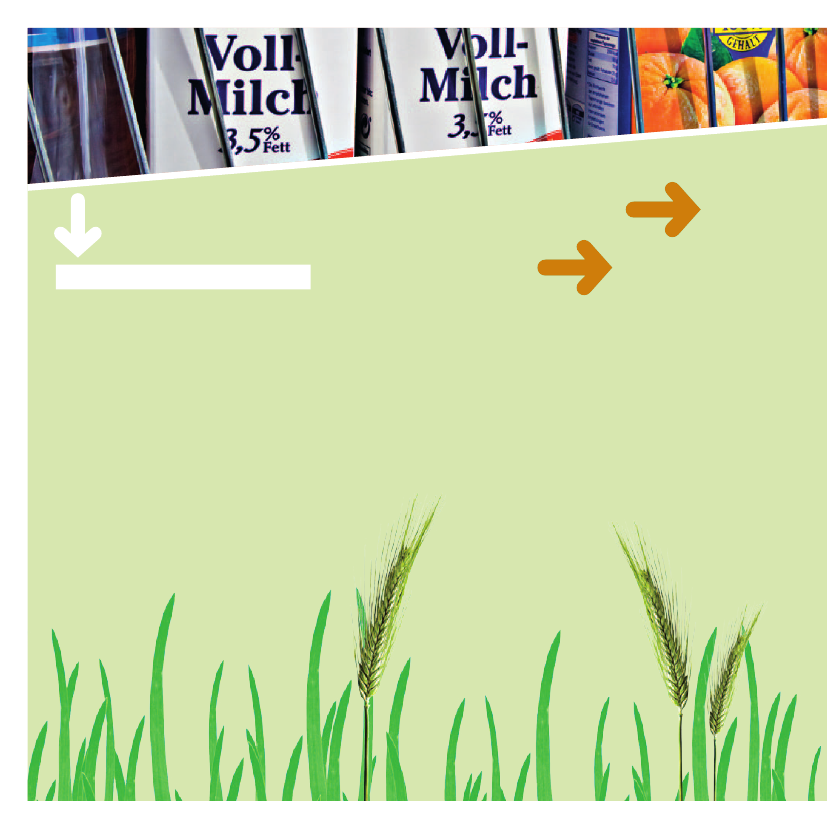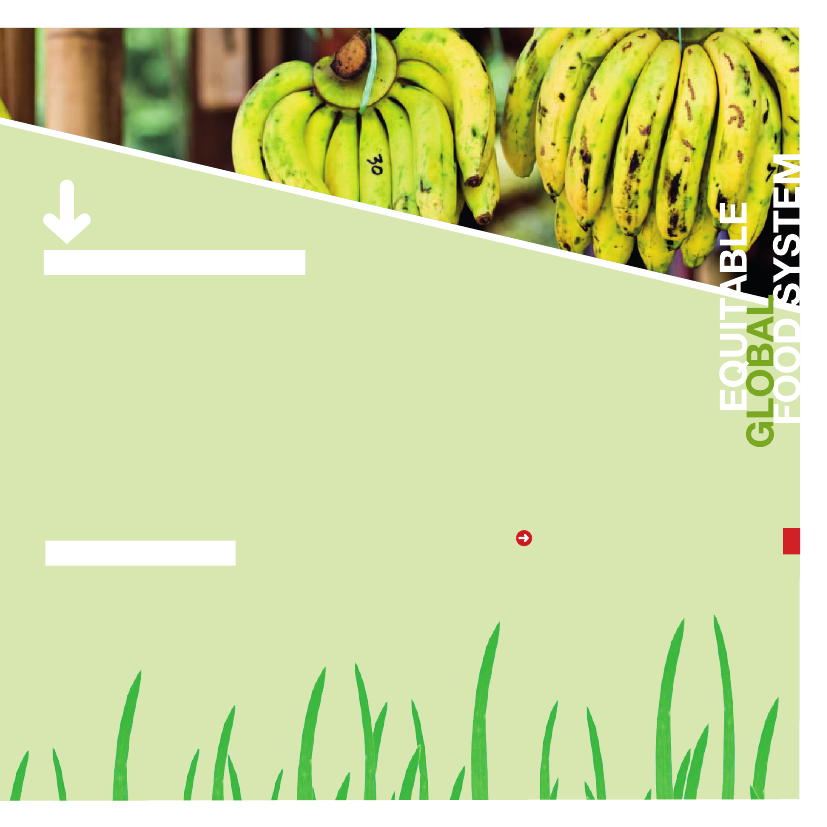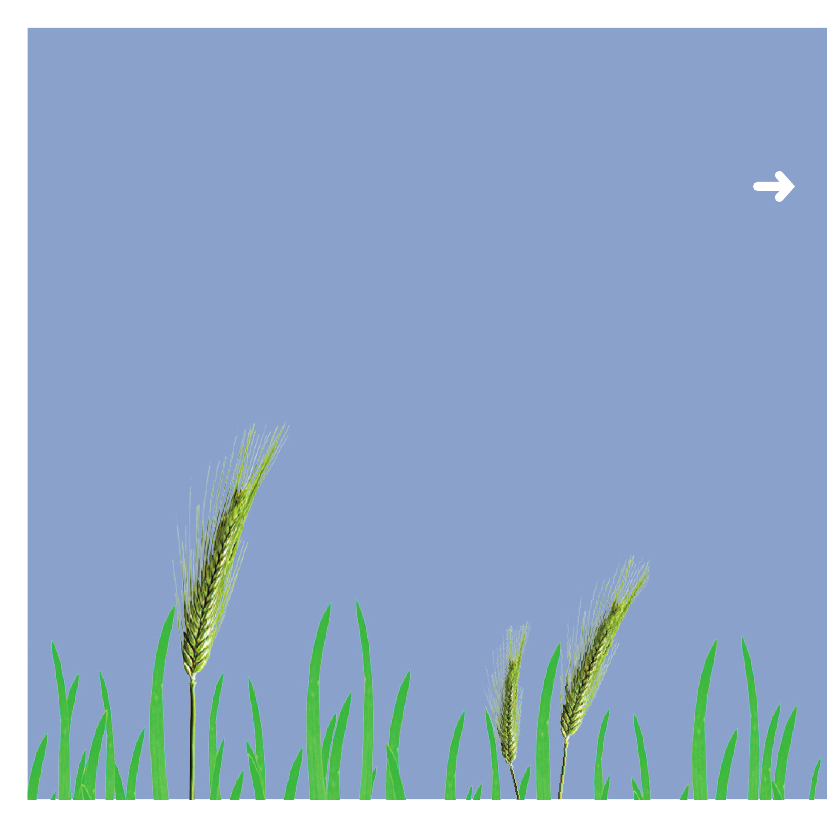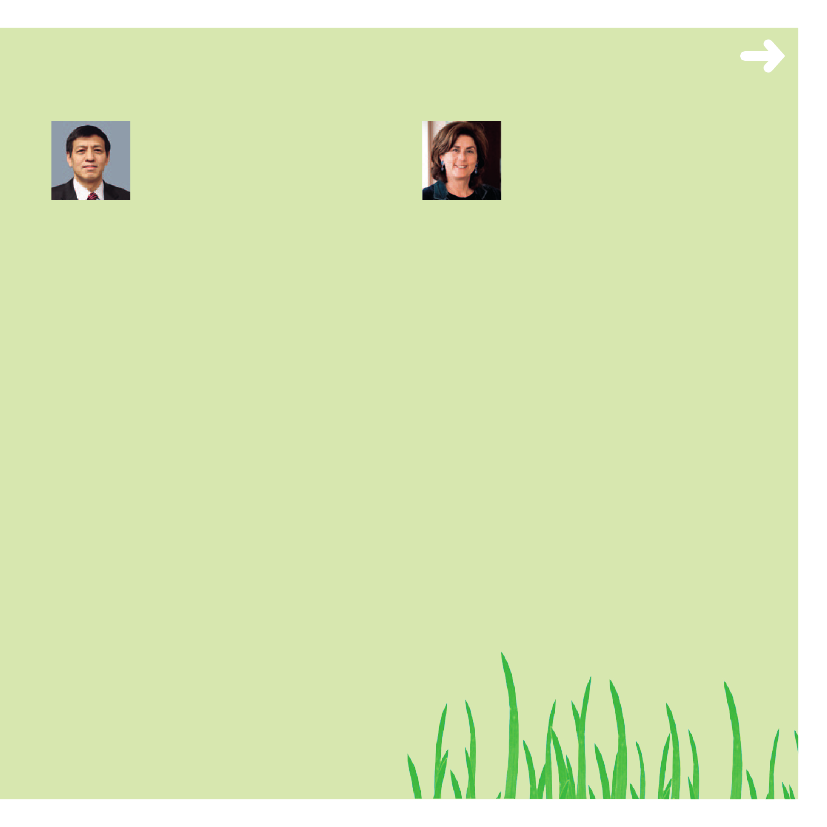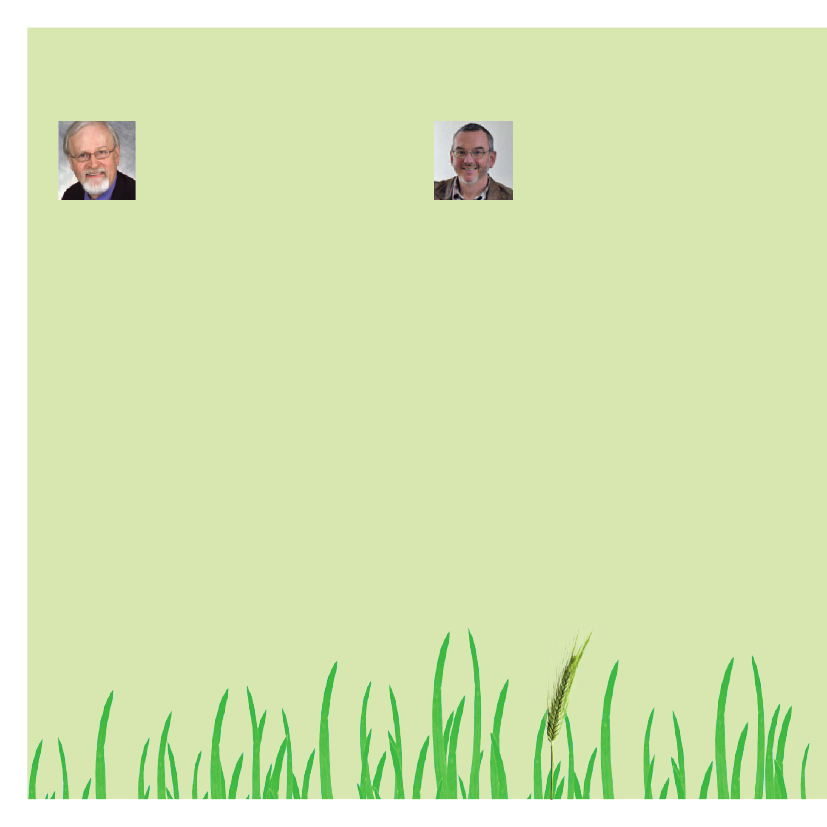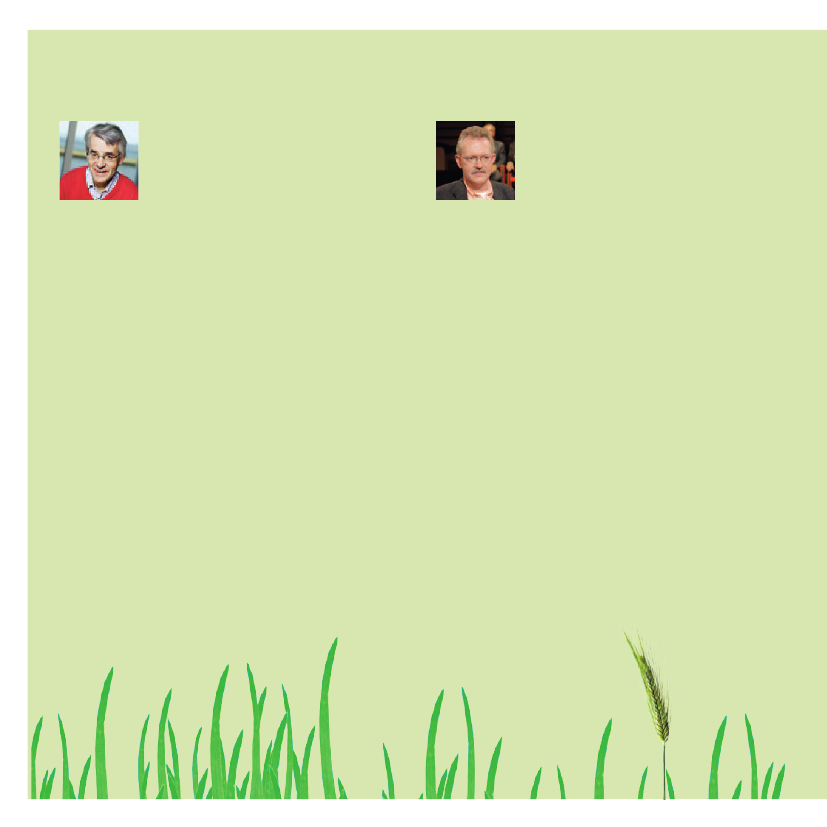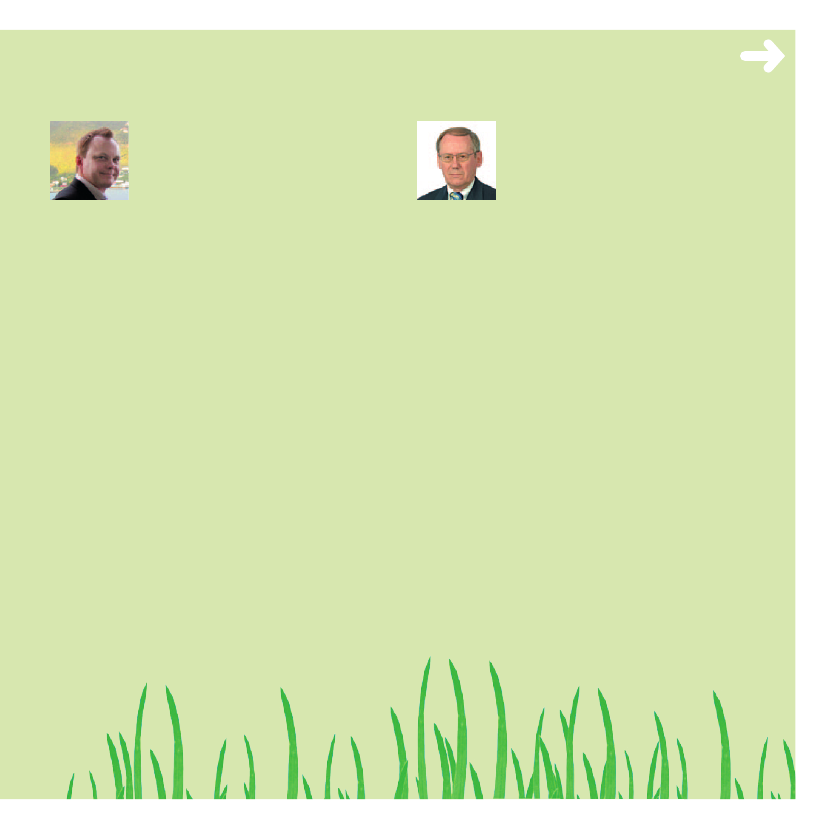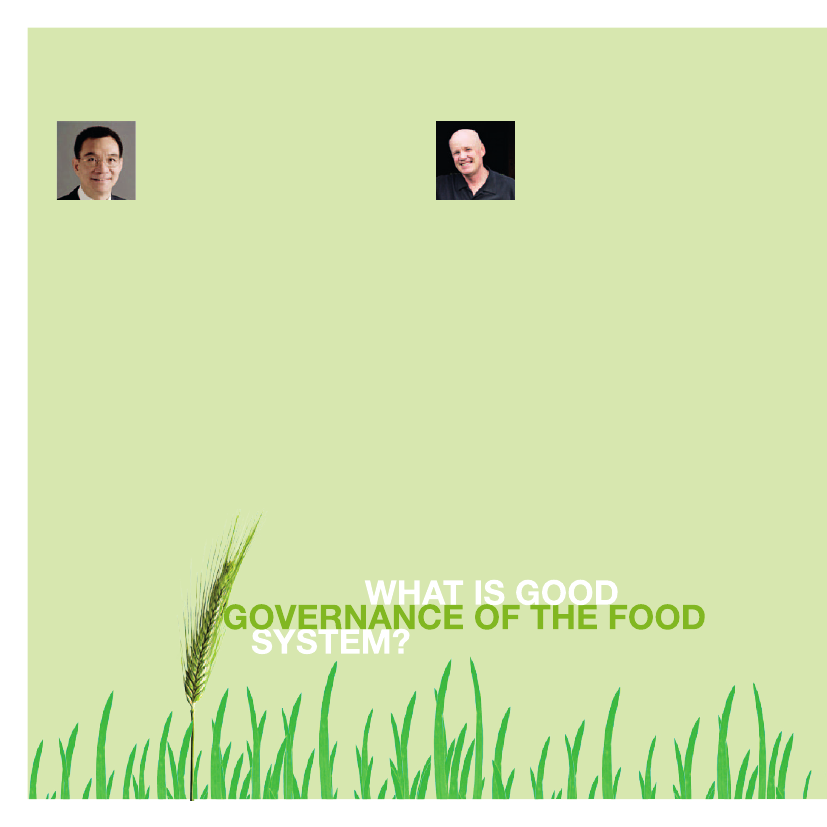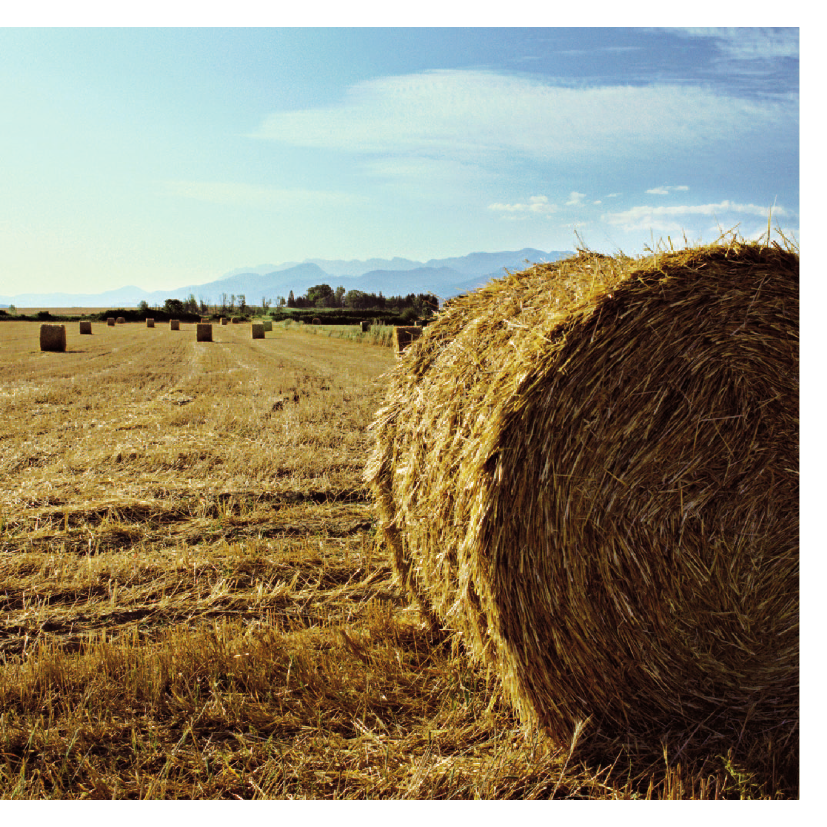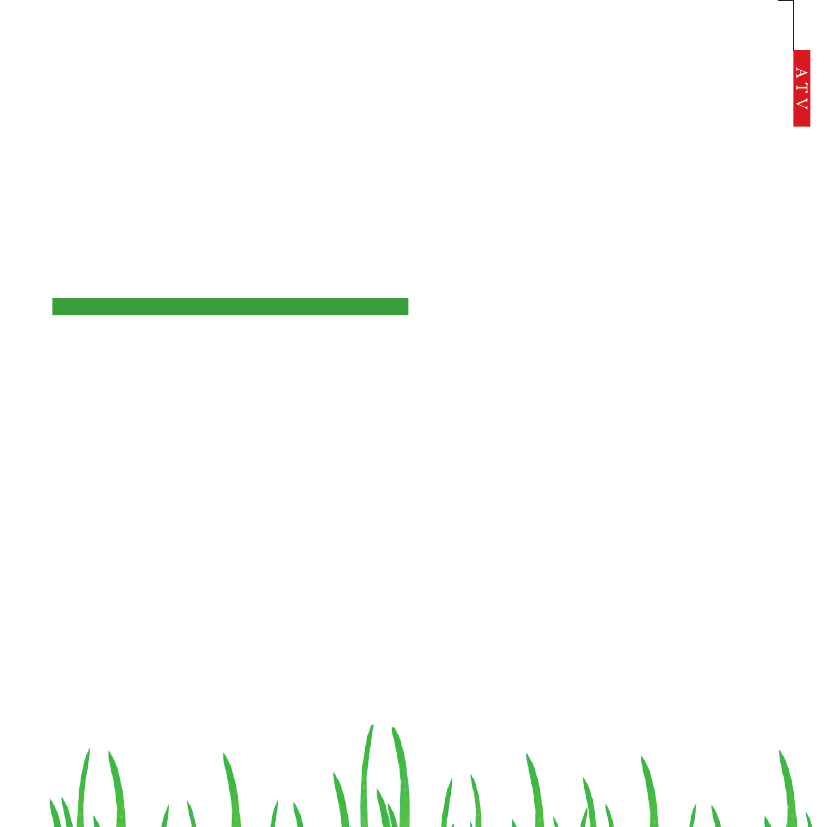Udvalget for Fødevarer, Landbrug og Fiskeri 2009-10
FLF Alm.del Bilag 308
Offentligt
conference ProgrammeTuesDay 29 June 2010
CAETS
Danish acaDemy ofTechnical sciences
fooD for allforever
1
inTroDucTionThere is no simple solution to sustainably feeding 9 billion people.Therefore, it is with great pleasure that the Danish academy ofTechnical sciences, aTv, and the international council of aca·demies of engineering and Technological sciences, caeTs, inviteyou to copenhagen to participate in an international conferenceon 29 June 2010.The world is facing a major challenge: match the fast changingdemand for food from a larger and more wealthy population; doso in ways that are environmentally, economically and sociallysustainable; and ensure that the world’s poorest people are nolonger hungry.such a challenge requires changes and new solutions in the wayfood is produced, stored, processed, distributed and policy re·formed.The righttechnological solutionscombined with therightpolicy directionsfor the future are explored on the conference.aTv and caeTs believe that in combination these can effectivelycontribute to a sustainable and equitable global food system.aTv and caeTs wish to facilitate an open debate, a free exchangeof ideas and discussion of new future·oriented solutions. our jointchallenge on the conference is to identify the real problems andthe effective answers which · at the same time · will increase foodproduction, reduce poverty and hunger and reduce over·exploita·tion of natural resources.We are pleased to release the final version of the conference pro·gramme. The programme is balanced with presentations, paneldiscussions and Q&a sessions, all added interactivity.This final version of the programme for the food for all conferencecontains abstracts of the presentations and a short biography ofall speakers.aTv and caeTs look forward to welcoming you to copenhagen.We have the makings of an outstanding conference, with oppor·tunities to meet old friends and to make new ones.See you in June 2010!
2
SuStaInable Food SyStemS – Food For all Forever
danISh academy oF technIcal ScIenceS
33
looking ToWarDs 2050anD beyonDProgramme8.309.00REGISTRATIONOPENINGThis section will present the best available estimates of future trends forfood security and natural resource management and identify the mostimportant factors that will influence these trends. Policy interventions willbe suggested to guide the trends towards desired societal outcomes andthe compatibility of food security and sustainability goals will be analyzed.ASSuRING fOOd fOR AllDirector generalShenggen fan,international food Policy researchinstituteSee abstract and short biography on page 9.ASSuRING SuSTAINAblE mANAGEmENT Of NATuRAlRESOuRcESPresident, Dr.marion Guillou,french national institute of agriculturalresearchSee abstract and short biography on page 9ARE ThE TwO GOAlS cOmPATIblE?ProfessorPer Pinstrup-Andersen,cornell universitySee abstract and short biography on page 10.
welcome by chairman of the Organisingcommitteeexecutive DirectormichaelStevns,Danish agriculture & food councilOpening address by The danish ministerfor development cooperation h.E.SørenPind,mfOpening remark by former Eu commis-sioner for Agriculturemariann fischer boelconference moderatorKim bildsøelassen,Danish broadcasting corporation
bREAK
4
SuStaInable Food SyStemS – Food For all Forever
soluTion asPecT ireforming The fooD ProDucTionsysTemAGRIculTuRE, fOOd SEcuRITY ANd clImATEProfessor, Dr. agroJohn R. Porter,university of copenhagenSee abstract and short biography on page 10.SYNERGY bETwEEN fOOd SEcuRITY ANd NATuRAl RESOuRcEmANAGEmENT ThROuGh AGRO-EcOlOGIcAl mEThOdSchairmanThomas harttung,international centre for research in organic food systemsSee abstract and short biography on page 11.ThE ROlE Of AGRIculTuRE RESEARch ANd mOlEculAR bIOlOGY TOAchIEvE SuSTAINAblE fOOd SEcuRITY fOR AllcoordinatorRoberto Rodriges,gv agroSee abstract and short biography on page 11.ThE OcEAN’S ROlE IN fEEdING GROwING wORld POPulATIONPresidentKarl A. Almås,sinTef fisheries and aquacultureSee abstract and short biography on page 12.
12.40 ·13.50
luNch
danISh academy oF technIcal ScIenceS
5
soluTion asPecT iireThinking The Processing anDsuPPly chainThE REAl vAluE Of fOOdglobal supply chain Director sustainable agricultureJan Kees vis,unileverSee abstract and short biography on page 12.TOwARdS SuSTAINAblE fOOd PAcKAGINGmanager environmental affairsOla Svending,stora ensoSee abstract and short biography on page 13.ENERGY EffIcIENcY IN ThE fOOd chAINDr.dennis R. heldman,university of california, DavisSee abstract and short biography on page 13.
bREAK
6
SuStaInable Food SyStemS – Food For all Forever
TEchNOlOGIcAl SOluTIONScOmbINEd wIThPOlIcY dIREcTIONS
Program
soluTion asPecT iiimoving ToWarDs economicincenTives anD full cosTingmARKET ORIENTATION ANd POlIcY REfORmSchief economist and senior vice PresidentJustin Yifu lin,The World bankSee abstract and short biography on page 14.full cOSTING – STIcK OR cARROTTbcIT’S All AbOuT GOvERNANcEProfessorRobert l. Paarlberg,Wellesley collegeSee abstract and short biography on page 14.
closing 17.30conference sum-upclosing address by President of cAETSProffesorKlaus bock,chairman aTvdRINKS ANd REfREShmENTS
18.15 · 20.00
dINNER
danISh academy oF technIcal ScIenceS
7
speakersabstracts ofthe presentations
8
SuStaInable Food SyStemS – Food For all Forever
sPeakerslooking ToWarDs 2050 anD beyonDDirector generalShenggen faninternational food Policy research instituteASSuRING fOOd fOR All
Presidentmarion Guilloufrench national institute for agricultural researchASSuRING SuSTAINAblE mANAGEmENT OfNATuRAl RESOuRcES
Progress in cutting hunger in the past several decades has beendisappointing. The number of hungry people has surpassed 1 billionand emerging trends, such as population growth and demographicchanges, rising land and water constraints, and climate change, arefurther threatening food security in the future. assuring food for allin 2050 and beyond can be achieved but business as usual will notbe enough. What is needed to enhance food security is “businessas unusual”– a smarter and more innovative, focused, and cost·effective approach.The elements of this new approach include: (i) invest more in agri·culture and social protection with a focus on nutrition and health;(ii) bring in new players to assume growing roles in enhancing foodsecurity; (iii) adopt country·led and bottom·up approach to develop·ment; (iv) design policies using evidence and experiments; and (v)walk the walk – keep commitments and implement timely policies.ShORT bIOGRAPhY
The world’s natural ecosystems are under increasing pressure toprovide an expanding population with a sustainable supply of food,fiber, fuel and other commodities while still providing services relatedto biodiversity, soil, water and air. human activities such as agricul·ture and forestry for food and progressively for non food uses affecta wide range of ecosystem services and may increase or, on thecontrary, minimise risks associated with their degradation. climatechange is already having a significant impact on biological systems.a challenge for agriculture and food in 2050 is to assure a sustain·able management of ecosystems and natural resources.ShORT bIOGRAPhY
Dr. shenggen fan was appointed Director general of the interna·tional food Policy research institute (ifPri) in December 2009. hejoined ifPri in 1995 as a research fellow and led ifPri’s programon public investment before becoming the Director of ifPri’s Devel·opment strategy and governance Division. Prior to working at ifPri,he held positions at the international service for national agriculturalresearch (isnar) in the netherlands and the Department of agricul·tural economics and rural sociology at the university of arkansas.he received his PhD in applied economics from the university ofminnesota and his bachelor’s and master’s degrees from nanjingagricultural university in china. Dr. fan’s research, which has beenwidely published, has centered on pro·poor development strategy,pro·poor investment, and rural·urban linkages in developing coun·tries in asia, africa, and the middle east. he has served in editorialboards of various academic journals and is currently an executivecommittee member of the international association of agriculturaleconomists.
marion guillou has been President (ceo) of inra (institut nationalde la recherche agronomique) since 2004 after having beenDirector·general of the same organisation from 2000 onwards.she is also the President of agreenium, the french consortium forresearch and education in agriculture, food and nutrition, animalhealth and the environment, created in may 2009. marion guillouis a member of the boards of the international research center forTropical agriculture (ciraD), the european food safety authorityand chairs the board of ecole Polytechnique (Paris). Previously, asgeneral Director for food (1996·2000), she participated actively ineuropean work as to food regulation and in the codex alimentariusworking sessions. marion guillou is a member of the french acad·emy of agriculture and the national academy of Technology; shequalified as a doctor in physico·chemistry, is an engineer of waterand forestry and has a diploma from the merited ecole Polytech·nique (X73).
danISh academy oF technIcal ScIenceS
9
sPeakersProfessorPer Pinstrup-Andersencornell universityARE ThE TwO GOAlS cOmPATIblE?
soluTion asPecT i– reforming The fooD ProDucTion sysTemProfessorJohn R. Porteruniversity of copenhagenAGRIculTuRE, fOOd SEcuRITYANd clImATE
This presentation will address potential trade·offs between achievingfood security for all, alleviating poverty and assuring sustainablemanagement of natural resources now and in the future. The authorwill reject the widespread notion that efforts to assure food securityfor all must necessarily be at the expense of the environment. Triplewins, i.e. food security for all, poverty reduction and sustainablemanagement of the environment, are not only possible but maybe achieved with economically and politically feasible governmentinterventions, some of which will be suggested.ShORT bIOGRAPhY
agriculture both contributes to and is highly affected by climatechange. The talk will consider how the future of agriculture is centralto the three elements of the ‘perfect storm’ of population increase,changing energy sources and food production. These will be inter·preted in the light of possible scenarios for agriculture in the future.ShORT bIOGRAPhY
Per Pinstrup·andersen is the h. e. babcock Professor of food,nutrition and Public Policy, the J. Thomas clark Professor ofentrepreneurship, and Professor of applied economics at cornelluniversity and Professor of agricultural economics at copenha·gen university. he is past chairman of the science council of theconsultative group on international agricultural research and PastPresident of the american agricultural economics association. hehas a b.s. from the Danish agricultural university, a m.s. and Ph.D.from oklahoma state university and honorary doctoral degrees fromuniversities in the us, uk, netherlands, switzerland, and india. heserved 10 years as the international food Policy research institute’sDirector general. he is the 2001 World food Prize laureate and therecipient of several awards for his teaching, research and com·munication of research results. his research and teaching includeeconomic analyses of food and nutrition policy, globalization andpoverty, agricultural development, the interaction between the foodsystem and human health and nutrition, and agricultural researchand technology policy.
John r. Porter is Professor of agroecology, faculty of life sciences,university of copenhagen, and is an internationally known scientistin crop ecology and physiology, biological modelling and agro·ecol·ogy. his main contribution has been multi·disciplinary and collabora·tive work in the response of arable crops, energy crops and complexagro·ecosystems to their environment with an emphasis on climatechange and ecosystem services. he has published nearly 100 pa·pers in reviewed journals out of a total of about 300 publications andhas personally received three international prizes for his researchand teaching. he has been a member of iPcc since 1994.
SuSTAINAblE mANAGEmENTOf NATuRAl RESOuRcESNOw ANd IN ThE fuTuRE
10
SuStaInable Food SyStemS – Food For all Forever
chairmanThomas harttung
international centre for research in organicfood systemsSYNERGIES bETwEEN fOOd SEcuRITYANd NATuRAl RESOuRcE mANAGEmENTThROuGh AGRO-EcOlOGIcAl mEThOdS
coordinatorRoberto Rodrigesgv agroThE ROlE Of AGRIculTuRE RESEARch ANdmOlEculAR bIOlOGY TO AchIEvE SuSTAIN-AblE fOOd SEcuRITY fOR All
how can a future food security be achieved by improving synergieswith ecosystem services?To secure long term resilient and productive agriculture we need todevelop agro·ecological methods which build on and enhance• biodiversity for pollination, pest control, disease resistance andcropping resilience• long term soil fertility for nutrient and water supply and humanhealth• conscious organic matter and grassland management and forcarbon sequestrationsuch methods correspond to the basic principles of organic agricul·ture which have proven to increase yields in africa and other tropicaland sub·tropical regions. in temperate and high input regionsorganic agriculture cannot always compete one·to·one in pure yieldterms but is often more profitable than conventional agriculture atthe farm level.ShORT bIOGRAPhY
how do biotech and the industrialized brazilian agriculture contributeto sustainability?brazil is one of the few countries with an abundance of both waterand land available for agricultural purposes. in an era of globalanxieties over food shortages, this places brazil in a unique posi·tion. Today, land management is the biggest challenge for brazilianagriculture. What are the opportunities and limitations in the brazilianmodel – and is it in fact possible to implement the model in africa?ShORT bIOGRAPhY
Thomas harttung is the chairman of icrofs · The internationalcentre for research in organic food systems – a transdisciplinaryand transinstitutional initiative · which identifies and coordinatesorganic research agendas worldwide · based on the 10 succesfulyears of Darcof (fØJo). he is an organic farmer since 1995 · andthe co·founder and chairman of aarsTiDerne.com · an organicfood company which grows and delivers organic vegetables, fruit,meat and a range of dry goods to the doorstep of more than 50.000households across Denmark, sweden and northern germany. Tho·mas harttung is also the founder of greencarbon and black carbonwhich addresses the complex interface between environmentalsustainability, food security and climate change. in 2009 Thomasharttung was acknowledged as a “hero of the environment” by Timemagazine.
roberto rodrigues, former brazilian minister of agriculture fromJanuary 2003 to June 2006, coordinator of the getulio vargasfoundation agribusiness center (gv agro) and President of thesuperior council of agribusiness of são Paulo’s federation of indus·tries (fiesP), is an agricultural producer and an agricultural engineerby training, following in the steps of his father and grandfather. heis also a Professor (currently on leave), holding the chair of ruraleconomics at the são Paulo state university. a strong supporter ofthe cooperative movement, he chaired the brazilian cooperativesorganization, the World committee on agricultural cooperatives andthe international cooperative alliance. he has travelled the world inthat capacity, visiting – as he likes to point out – 80 countries whileperforming his duties. a well·known agribusiness leader, robertorodrigues served as President of the prestigious brazilian ruralsociety and the brazilian agribusiness association. he is also amember of the board of dozens of brazilian producers’ associations.
danISh academy oF technIcal ScIenceS
11
sPeakersPresidentKarl A. AlmåssinTef fisheries and aquacultureThE OcEAN’S ROlE IN fEEdING GROwINGwORld POPulATION
soluTion asPecT ii– reThinking The Processing anD suPPly chainglobal supply chain Director sustainableagricultureJan Kees visunileverThE REAl vAluE Of fOOd
could the ocean become the next revolution in human food provi·sion? and is it possible to transfer the production of animal proteinfrom land to the ocean? The global catch of wild fish has approxi·mately been at the same level for the last two decades. half of thefish stocks are fully exploited and more than one third is overexploit·ed. The production of fish by aquaculture has to be doubled duringthe next 30 years to compensate for a growing population. marineaquaculture holds a large potential for sustained growth. althoughsome environmental impacts can be expected from the expansion ofmarine aquaculture, these are modest compared to those resultingfrom food production on land.ShORT bIOGRAPhY
are there limitations to what food·business can do in developingcountries? is it in fact possible to secure supply?ShORT bIOGRAPhY
karl a. almås is head of europe’s largest research institute for fisher·ies and aquaculture technology, sinTef fisheries and aquaculture,norway, a private research organisation consisting of 8 researchinstitutes with total of 2200 people doing contract research forprivate industry and the public sector. karl a. almås holds a PhD inbiochemical engineering from the norwegian university of scienceand Technology focusing upon fish. he has published approximately40 scientific papers, book chapters and patents related to fishprocessing and utilization of marine biomass for other products thanfor human consumption. at the moment, karl is the acting boardchairman of 2 newly established companies, professional member ofThe institute of food Technologists (ifT) and member of committeesorganized by the norwegian research council. he is the vice presi·dent of the norwegian academy of Technological sciences
Jan kees originally trained as a chemist, but left the laboratory for acareer in unilever in the area of environmental lifecycle analysis. hehas headed the company’s sustainability programmes since theirconception in 1996. his main role is to support unilever’s 11 leadsustainability programmes around the world in their efforts to putsustainable agriculture into practice. This means talking to buyers,supply chain managers and in·house brand developers to buildawareness of sustainable agriculture as a viable business option.Jan kees also represents unilever more widely, with links to a varietyof ngos and other food.
ThE PROducTION Of fIShbY AquAculTuRE hASTO bE dOublEd
12
SuStaInable Food SyStemS – Food For all Forever
managerOla Svendingstora ensohOw dOES PAcKAGING cONTRIbuTE TOSuSTAINAbIlITY?
Dr.dennis R. heldmanuniversity of california, DavisENERGY EffIcIENcY IN ThE fOOd chAIN
sometimes packaging is considered to be an undesired waste ap·pearing when the food has been consumed. however, a packag·ing’s outer most important property is to protect a packed productthroughout a chain of logistics. regardless of material, packagingdoes contribute to sustainability in terms of minimizing food waste,but different sustainability aspects must also be regarded fromraw·material sourcing via manufacture and filling to consump·tion. Packaging’s contribution to economic, environmental andsocial sustainability can be illustrated by the fact that in develop·ing countries inadequate packaging results in 30% to 50% of allfood produced never reaching the final consumer, compared with2% to 5% in developed countries. on the other hand, a third of allfood brought home from supermarkets is wasted. What the worldactually needs is more and better packaging from renewable andsustainable sources.ShORT bIOGRAPhY
There are numerous opportunities for food engineers to contribute toglobal food security. These opportunities include increased efficiencyin the conversion of raw materials into consumer food products andin reducing losses throughout the food chain. These contributionscan be achieved through application of new technologies as well asusing appropriate scale technologies in developing countries.ShORT bIOGRAPhY
ola svending has worked in stora enso since 1997, mainly with lifecycle assessment related issues. he holds a msc in environmen·tal engineering and a lic eng in environmental systems analysis.Today, ola is active in various industry organizations, including theconfederation of european Paper industries, The alliance for bever·age cartons and the environment (e.g. in the scP food roundTable) and euroPen, The european organization for Packagingand the environment. ola is also a board member of returkartong(managing carton recycling in sweden) and a member of the steer·ing group of swedish miljöpack (helping companies implementingthe european Packaging and Packaging Waste directive) whilealso managing daily environmental affairs issues within stora ensoPackaging.
Dennis r. heldman holds b.s. and m.s. degrees from The ohiostate university and PhD from michigan state university. he hasbeen a professor at michigan state university, the university of mis·souri and rutgers, The state university of new Jersey. Dr. heldmanhas held r&D positions at the campbell soup company, the nationalfood Processors association, The national food laboratory, andthe Weinberg consulting group inc. he served as President of ifT,the society for food science and Technology from 2006·07. Dr.heldman was elected fellow in the international academy of foodscience & Technology in 2006. currently, he is adjunct Professor offood engineering at the university of california, Davis.
danISh academy oF technIcal ScIenceS
13
soluTion asPecT iii– moving ToWarDs economicincenTives anD full cosTingchief economist and senior vice presidentJustin Yifu linThe World bankmARKET ORIENTATION ANd POlIcY REfORmSShORT bIOGRAPhY
ProfessorRobert l. PaarlbergWellesley collegeIT’S All AbOuT GOvERNANcE
Justin yifu lin is the World bank’s chief economist and senior vicePresident. on leave from Peking university since June 2008, mr.lin received his PhD in economics from the university of chicagoin 1986. he is the author of 18 books and has published more than100 articles in refereed international journals and collected volumeson history, development, and transition. Justin yifu lin was a deputyof china’s People’s congress, vice chairman of committee foreconomic affairs of chinese People’s Political consultation confer·ence and vice chairman of the all·china federation of industry andcommerce. he served on several national and international commit·tees, leading groups, and councils on development policy, techno·logy, and environment including: the united nations millennium Taskforce on hunger and the Working group on the future of the oecD.he was awarded the 1993 and 2001 sun yefang Prize (the highesthonour for economists in china).
Who governs the world food system? The politics of food andagriculture are changing fast in the 21st century – what is goodgovernance of the food system? how could the future food systembe governed · are there some innovative recommendations?ShORT bIOGRAPhY
robert l. Paarlberg is the betty freyhof Johnson class of 1944 Pro·fessor of Political science at Wellesley college and associate at theWeatherhead center for international affairs at harvard university.he received his b.a. in government from carleton college in min·nesota and his Ph.D. in government from harvard. he has served asvisiting professor of government at harvard and as a legislative aidein the u.s. senate. his principal research interests are internationalagricultural and environmental policy. in his latest book “food Poli·tics: What everyone needs to know”, he speaks about the currentfood system, the surrounding politics and their implications for thelivelihoods and overall welfare of its dependents, particularly the ruralpoor in developing countries. he has also has published books onthe use of food as a weapon and on international agricultural tradenegotiations. Paarlberg’s most recent research focus has been onthe regulation of modern technology, including biotechnology. hehas worked most intensively on policies toward genetically modifiedcrops and foods in developing countries.
14
SuStaInable Food SyStemS – Food For all Forever
ThE wORld IS fAcING AmAJOR chAllENGE...but the opportunitiesto succeed and meet thechallenge are on the otherhand great.
danISh academy oF technIcal ScIenceS
15
Practical informationVenuethe venue for the conference iseigtveds Pakhus,asiatisk Plads2, DK-1402 copenhagen Kall sessions are plenary. Working language is English and notranslation will be provided.RegistRationthe registration fee includes:■conference■Breaks and refreshments■lunch and dinner■memory stickPlease RegisteR no lateR than FRiday 18 June 2010RegistRation FoRmconference:Please registerherecaEtS annual meeting(Only CAETS delegates):Please registerherePaRticiPation FeeParticipants: DKK 3050caEtS delegates: DKK 3400academy members and finance council members*: DKK 2300PhD students: DKK 2300Students: DKK 500all prices are exclusive of 25 % Vat*registeredrepresentatives of members of the atV financecouncilPaymentinvoice and confirmation will be forwarded upon receipt ofregistration.cancellationif cancellation is received later than the 15 June 2010 the par-ticipation fee cannot be reimbursed, but another delegate mayattend in the original delegate’s place.oRganising committeethe conference is organised by an organising committee setup by the atV Governing Board. chairman of the committee isExecutive Directormichael stevns,Danish agriculture & foodcouncil.membeRsProfessorJens adler-nissen,technical University of Denmarkmanaging Directorasbjørn børsting,DlG GroupHead of Departmentsvend christensen,copenhagenUniversity, faculty of life SciencesDirectorniels halberg,icrofSchairmanbent claudi lassen,WEfriProfessorliisa lähteenmäki,aarhus UniversitySenior analystKarl christian møller,Danish crowncEothomas bagge olesen,fDB (the co-operative retail andWholesale Society of Denmark)State Secretary for Development Policyib Petersen,ministry offoreign affairsProfessorPer Pinstrup-andersen,cornell Universitymanaging Directorsven Riskær,PluribusWebPlease continue to consult the conference websitewww.atv.dkfor updates to the programme and for practical detailsconcerning registration, accommodation and travel.contactlouise rørbæk Heiberg,consultantatV, lundtoftevej 2662800 Kgs. lyngby, Denmarkt: +45 45 96 08 21m: [email protected]sPonsoRatV and caEtS would like to thank the Danish ministry of foreignaffairs for the full in-kind sponsorship and carlsberg mindelegatfor its contribution to the hosting of the caEtS annual meeting.
